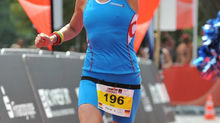Platelets do improve failure rates in rotator cuff repair, but are too expensive.
- Patrick Vavken
- Jan 20, 2016
- 2 min read
In their efforts to help patients regain better mobility and quality of life after an injury, physicians and scientist look towards regenerative medicine. Between biologic feasibility and legal regulations, platelet concentrates have a justified claim at being the hottest ticket when it comes to clinical applications in this new field. In principle, the same clot that forms and leads to healing if you cut your finger is harv
ested, concentrated, and applied to a damaged tissue.

One injury that is stopping athletes in their tracks, both word class professionals and weekend warriors alike, is a torn rotator cuff. This group of muscles controls motion of the shoulder while at the same time maintaining stability and balance. With this heavy burden they are prone to injury, and – unfortunately- often fail to heal, even with surgical repair. Preclinical studies have shown that if rotator cuff cells are exposed to platelet concentrates, they will multiply quicker and produce matrix proteins at a higher rate. This suggests stronger scar formation and fewer surgical failures. However, up until now, there was only limited data on clinical performance from early use of PRP in cuff repair.
In an upcoming study in the American Journal of Sports Medicine a group of almost 800 patients undergoing rotator cuff repair with or without platelet concentrates was analyzed. In this study of unprecedented size, strong evidence was found showing a beneficial effect of platelet concentrates on rotator cuff healing in the clinical setting.

Rotator cuff tears of less than 3 cm responded very favorably to platelet augmentation. This response can be quantified as a number-need-to-treat of 14, i.e. for every 14 patients treated with platelets, there is one less surgical failure. Larger tears did not respond to platelets. However, at current market prices, despite this substantial effect, platelets are not cost-effective.
In summary, platelets can have a meaningful, positive effect on rotator cuff repair in a selected group of patients. However, even in this subgroup, the currently available products are too expensive to be cost-effective.
































Comments